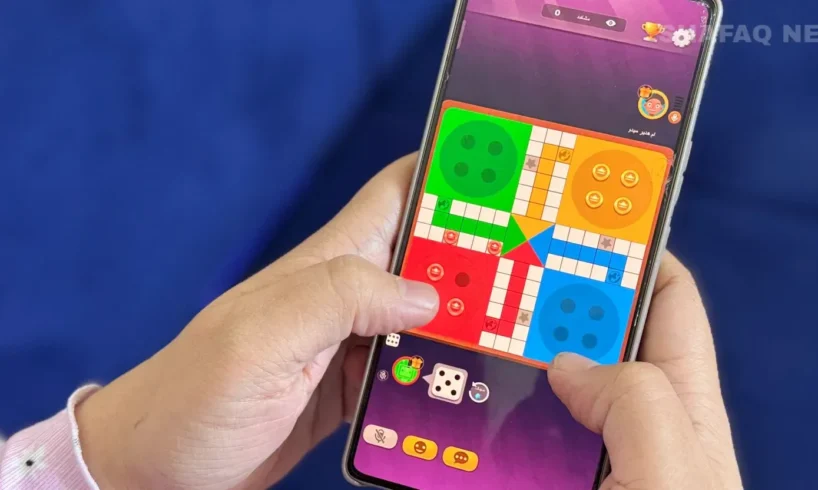
Shafaq News
– Baghdad
When
42-year-old mother Umayya Aziz noticed her teenage daughter asking for more
spending money than usual, she assumed it was harmless. Fourteen-year-old Amina
rarely left their Baghdad home during the long summer break, so the small
requests seemed trivial—until cash began vanishing from Umayya’s purse.
“I thought
she was saving her allowance,” she told Shafaq News. “But the money kept
disappearing, and she couldn’t explain why.”
After quiet
observation, Umayya discovered that her daughter had been buying prepaid cards
to top up credits in the online game Ludo. Those digital credits were being
used to enter private matches involving real-money bets with other players.
What began
as a friendly game among classmates had quietly evolved into a subtle form of
gambling—part of a growing online culture that is reshaping how Iraqi youth
spend, socialize, and seek excitement.
Read more: Digital wild west: Online trading fraud surges in Iraq
A Digital
Trap Disguised as Play
Across Iraq,
parents are increasingly alarmed by the hidden costs of online gaming. Ludo,
once a family board game, has become a virtual battleground where teenagers
play for both pride and profit. Within private chat rooms, players compete
using cash-based challenges that often escape parental supervision.
The global
success of Ludo King—a digital remake of the ancient Indian game Pachisi—has
brought with it features such as customizable rooms, private chats, and paid
tokens. For many Iraqi teens, it offers an accessible thrill that quickly turns
costly.
Seventeen-year-old
Haidar al-Shammari said he initially downloaded the app to play with friends.
“Later, I found private rooms that opened after midnight, but joining cost
between 25,000 and 50,000 dinars,” he said. Some players, he added, were
wagering as much as $100 per match. “I quit when I realized I had already spent
over seven million dinars ($4,800). It was becoming an addiction.”
Psycho-Education
Specialist Dr. Samah Ramadan explained that such patterns reveal how
adolescents process digital rewards. “Each win releases dopamine, reinforcing
the need for instant gratification. This can dull sensitivity to real-world
consequences, encouraging impulsive behavior similar to early gambling
tendencies.”
Dr. Ramadan
added that the rapid feedback cycle in online games can “reprogram the reward
system,” particularly during adolescence when emotional regulation is still
developing. “The danger isn’t just financial—it’s psychological,” she noted.
“Children begin to associate success with chance rather than effort.”
Therapist
Mohammed al-Zurkani also warned of the game’s harmful effects, pointing out
that Ludo Star, which has topped download charts in much of the world, “carries
many negative psychological impacts, including increased hostility, resentment,
and unhealthy behavior.” He said the game spreads among youth and teenagers “a
sense of unfair competition, the use of offensive language, and the formation
of inappropriate relationships with strangers in the virtual world.”
From Gaming
to Gambling
Experts say
the shift from casual play to financial betting is gradual but powerful. The
mix of anonymity, peer competition, and instant digital payments creates a
sense of control that is largely illusory.
Winning, according to Al-Zarkani, becomes an
emotional hook.” The brain, conditioned by small victories, “learns to crave
the next reward, pushing players to take bigger risks even when they can’t
afford to.”
Dr. Ramadan explained
that this cycle mirrors the early stages of gambling disorder. “When young
people begin to chase losses or hide their spending, we’re no longer talking
about recreation—we’re talking about behavioral conditioning.”
She also
noted that the lack of effective parental monitoring worsens the problem, as many
parents underestimate how digitally skilled their children are. “Today’s
teenagers often know far more about online platforms than their parents do,
which allows them to hide their activities. When adults don’t understand the
technology, they lose the ability to guide or set effective boundaries.”
Read more: Iraq’s online scam trap: The financial Price for a digital dice
Violence
Beyond the Screen
The
consequences of such behavior have already spilled into real life. Iraqi
security authorities report cases of fraud, blackmail, and even homicide linked
to disputes over Ludo matches.
In one
incident in 2023, a man killed his wife following an argument about the game,
later setting her body on fire. Officials have also recorded multiple arrests
for scams and extortion schemes tied to private gaming rooms.
Technology
expert Othman Ahmed Akram warned that the problem lies in how easily money has
entered digital play. “Ludo was designed for entertainment, but people turned
it into a betting arena,” he said.
Dr. Ramadan
observed that emotional frustration from online losses often triggers
aggression. “Virtual anonymity lowers empathy,” she explained. “When players
lose control, the anger and humiliation felt in the game can carry into family
life or social interactions, leading to real-world conflict.”
Read more: Iraq’s Gen Z: Caught between a digital future and fragile realities
Balancing
Play and Protection
Not all
young players view Ludo in a negative light. University student Riam Saad said the game
helps maintain friendships since it keeps people connected. “Too much play can
waste time, but moderation makes it enjoyable.”
Her friend
Ali Hussein, 19, agreed that it is not the game itself that causes problems. “It
depends on how people use it. For me, it’s just a way to relax and talk to
friends from other cities.”
Experts
agree that digital gaming itself isn’t inherently harmful. “Games like Ludo can
support strategic thinking and social connection if boundaries are clear. Dr.
Ramadan affirmed that what youth need is awareness, not bans. “Prohibition
rarely works—it pushes the behavior underground. Instead, parents and schools
must teach children to separate fun from financial risk, and competition from
self-worth.”
Read more: Iraq confronts growing concerns over social media’s influence on youth
A Call for
Early Awareness
Both experts
urged Iraq’s education system to take an active role in promoting digital
literacy. “Awareness should start early,” Al-Zirkani emphasized. “Children need
to understand how online platforms are designed to hold their attention. When
they recognize that, they can make conscious choices.”
Dr. Ramadan
suggested that families hold open conversations about online spending, rewards,
and peer pressure. “Engagement—not punishment—is the key,” she said. “When
parents listen and participate, they can guide rather than control.”
Written and
edited by Shafaq News staff.





